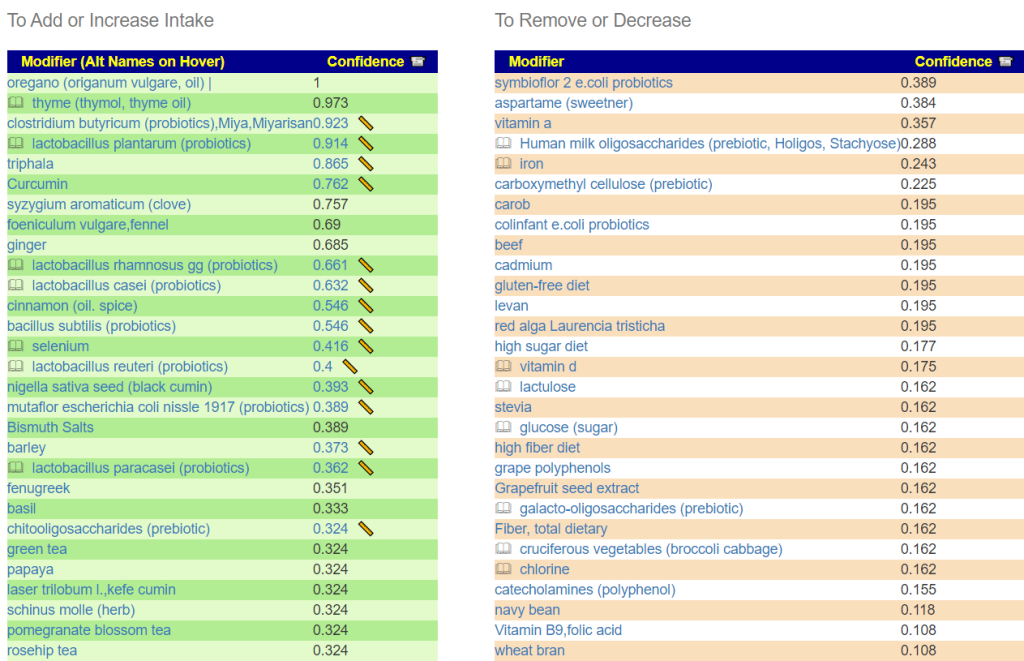A recent study identifies which bacteria are involved: Defining Small Intestinal Bacterial Overgrowth by Culture and High Throughput Sequencing [2023].

At a high level, Small Intestinal Bacterial Overgrowth (SIBO) appears to have low levels of Streptococcus and Rothia.
SIBO is accounted for primarily by 2 E coli strains and 2 Klebsiella species. This remarkably specific group of microbes account for 40.24% of duodenal bacteria in SIBO subjects, compared with 5.6% in non-SIBO subjects.
Using Microbiome Prescription expert system with these 4 pieces of information, we can get some suggestions on how to shift the bacteria.

Including antibiotics into the scope, we have this list

My own preference for non-antibiotic treatment would be:
- triphala
- clostridium butyricum (probiotics),Miya,Miyarisan – using Miyarisan pressed tablets and letting them slowly dissolve in the mouth.
- oregano (origanum vulgare, oil)
- thyme (thymol, thyme oil)
Of special note is mutaflor escherichia coli nissle 1917 (probiotics) which to some may appear to be a contradiction to the results. It is not, this is a beneficial probiotic that is aggressive in pushing out bad E.Coli strains.
I would do only one at time for one week each — because a “herx” type reaction (temporary worsening of symptoms) may happen.
NOTE: Probiotics in capsules should not be used. The capsules may not dissolve until after the targeted area. Custom Probiotics sells powders of many of these probiotics with instruction to dissolve in a glass of water and then consumed. That process is likely to produce the best results.
Postscript – and Reminder
I am not a licensed medical professional and there are strict laws where I live about “appearing to practice medicine”. I am safe when it is “academic models” and I keep to the language of science, especially statistics. I am not safe when the explanations have possible overtones of advising a patient instead of presenting data to be evaluated by a medical professional before implementing.
I can compute items to take, those computations do not provide information on rotations etc.
I cannot tell people what they should take or not take. I can inform people items that have better odds of improving their microbiome as a results on numeric calculations. I am a trained experienced statistician with appropriate degrees and professional memberships. All suggestions should be reviewed by your medical professional before starting.
The answers above describe my logic and thinking and is not intended to give advice to this person or any one. Always review with your knowledgeable medical professional.
Recent Comments